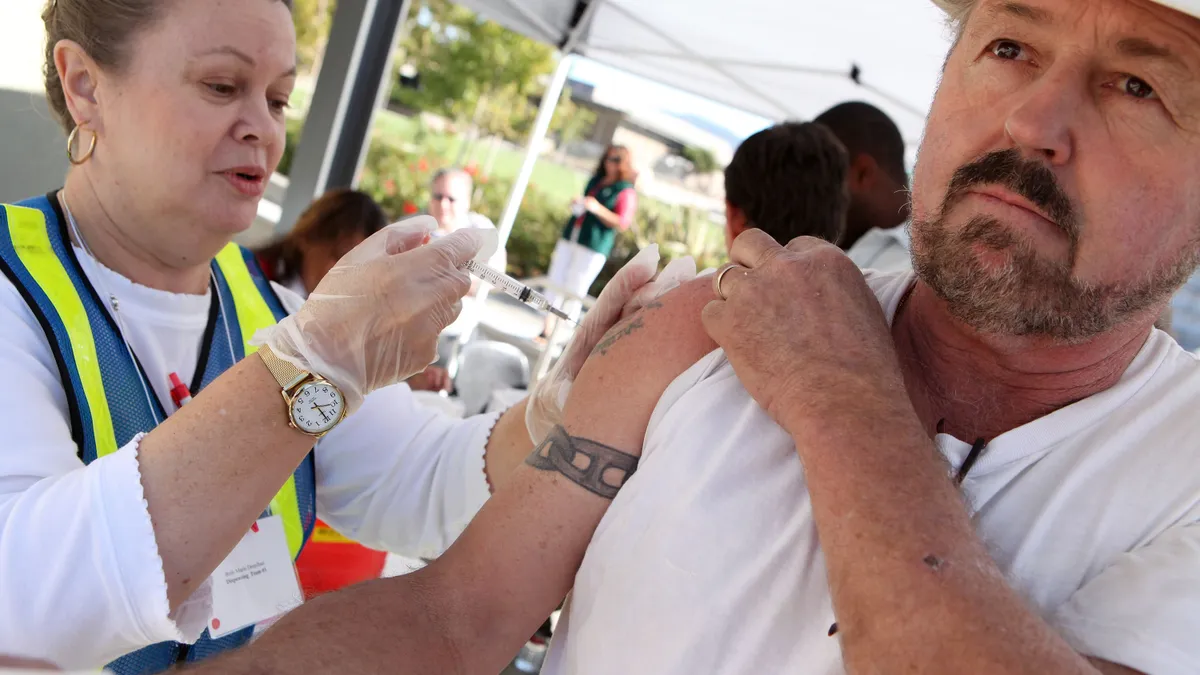Dive Brief:
- Employers covered by the National Labor Relations Act must bargain with unions over certain aspects of the Occupational Safety and Health Administration's emergency temporary standard mandating COVID-19 vaccinations, the National Labor Relations Board announced in a Nov. 10 memo.
- In the memo, acting NLRB General Counsel Joan Sullivan explained that while each case will stand on its own, the agency's position is that employers need to bargain with unions about areas of the ETS that impact terms and conditions of employment.
- Employers are not obligated to bargain over changes that are statutorily mandated, the mandate said. But an employer "may not act unilaterally when it has some discretion in implementing those requirements," it said.
Dive Insight:
OSHA's vaccine mandate "clearly affects terms and conditions of employment," NLRB General Counsel Jennifer Abruzzo said in a press release announcing the memo. For example, the ETS may affect whether workers subject to it can continue to be employed, Abruzzo said.
The mandate makes some room for employers to take direction on how they implement the ETS. "In those circumstances, a decisional bargaining obligation is required. The employer also has an obligation to bargain over the effects of this policy," Abruzzo said. "While our country recovers from COVID-19, workers should know they have the right to a safe workplace and to have their voices heard."
The ETS, which OSHA issued Nov. 4, requires employers with 100 or more employees to implement a COVID-19 vaccine requirement for their workforce by Jan. 4, 2022 — although the mandate is currently paused for judicial challenges. If upheld, it also will require employers to offer a weekly testing alternative to those who cannot or will not receive a vaccine.
OSHA's mandate also requires employers to provide up to four hours of paid time and reasonable paid sick leave to support workers' vaccinations. Employers are not required to pay for the costs created by regular COVID-19 testing for workers who elect to forgo a vaccine.













